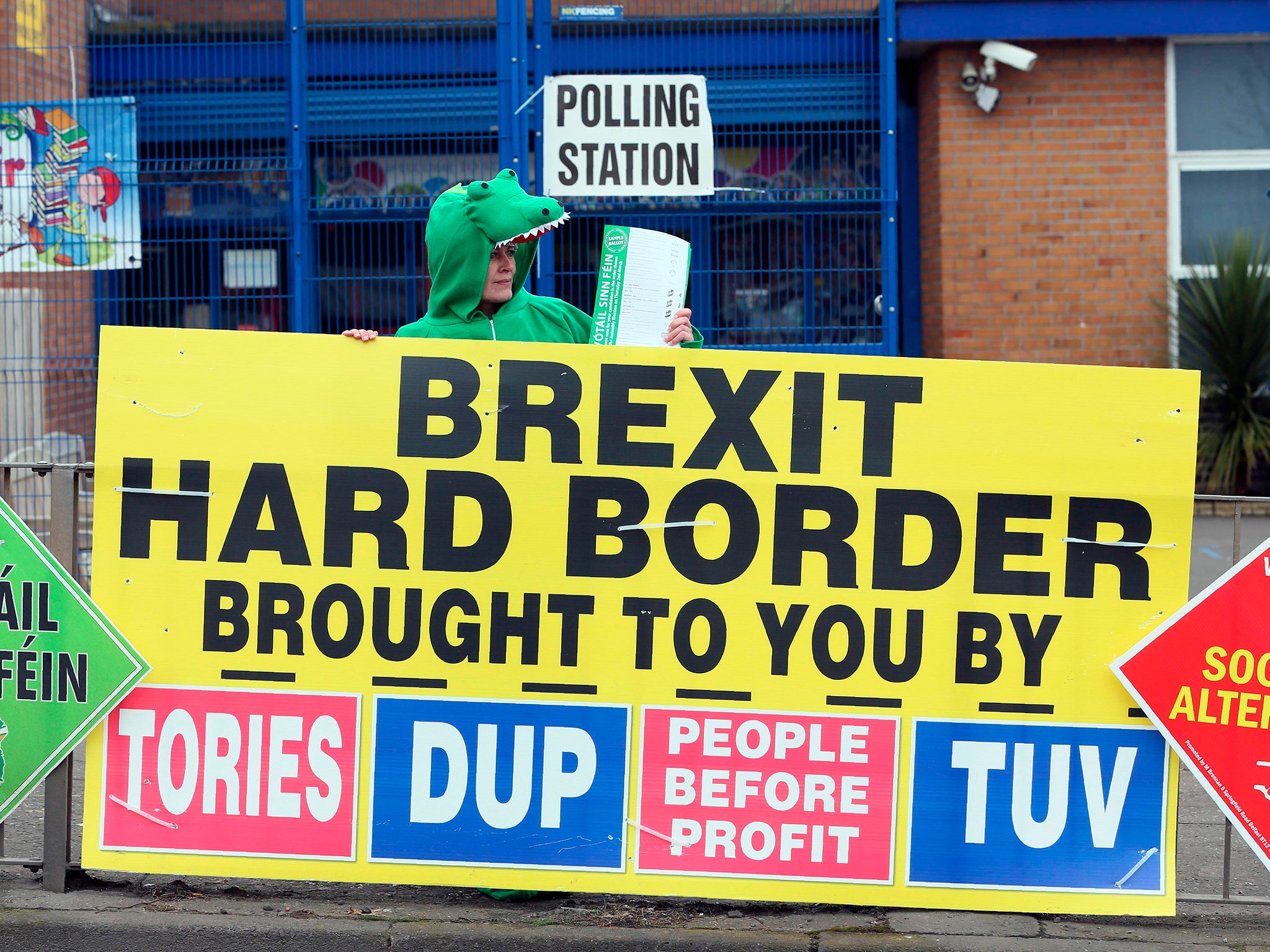Brexit: Theresa May's backstop plan 'would lead to hard border' with Ireland, says EU
Commission says UK proposal leaves questions unanswered

Your support helps us to tell the story
From reproductive rights to climate change to Big Tech, The Independent is on the ground when the story is developing. Whether it's investigating the financials of Elon Musk's pro-Trump PAC or producing our latest documentary, 'The A Word', which shines a light on the American women fighting for reproductive rights, we know how important it is to parse out the facts from the messaging.
At such a critical moment in US history, we need reporters on the ground. Your donation allows us to keep sending journalists to speak to both sides of the story.
The Independent is trusted by Americans across the entire political spectrum. And unlike many other quality news outlets, we choose not to lock Americans out of our reporting and analysis with paywalls. We believe quality journalism should be available to everyone, paid for by those who can afford it.
Your support makes all the difference.Significant gaps in Theresa May’s new Brexit customs plan for Northern Ireland would lead to the creation of a hard border with the Republic, the European Commission has said.
A presentation drawn up by the EU’s negotiating team for member states said the UK’s customs paper, which was released on Thursday, “leaves key questions unanswered”.
Officials are particularly worried that the UK plan would not keep Northern Ireland aligned with single market rules, meaning regulatory checks would be needed at the border for goods.
They are also concerned at UK proposals to time-limit the proposal until 2021 at the latest, with the presentation asking: “Is this a backstop?”
The presentation concludes that the UK proposal “does not cover regulatory controls, leading to a hard border”.
Brexit secretary David Davis met with chief negotiator Michel Barnier in Brussels on Monday to discuss progress in the negotiations. The trip is only Mr Davis’s second visit to the de facto EU capital this year, with progress in talks having been slow. The minister declined to speak to the press during the trip.
The “backstop solution” is supposed to prevent a hard border from emerging on the island of Ireland no matter what happens. Both sides say they do not want a hard border because the open frontier is part of the Good Friday Agreement, which brought an end to the Troubles.
Mr Barnier last week said he was still studying the UK’s proposal and had not rejected it out of hand. When asked why he was doing so if it has such problems, he said: “Because I look at all British proposals in an objective manner.”
The UK paper is the product of months of cabinet wrangling over how to temporarily solve the Irish border issue if it cannot be solved by a wider trade deal.
Separately, the cabinet has still not decided on a single solution for the wider customs agreement between the UK and EU – with two options on the table. Both ideas, “max fac” and “customs partnership” have been rejected out of hand by Brussels.
A spokesperson for the European Commission said: “We can confirm that the European Commission chief negotiator Michel Barnier and the secretary of state for exiting the European Union David Davis met this morning here in Brussels where they discussed the latest state of play of the Article 50 negotiations. They touched on issues related to the withdrawal agreement, including the backstop for Ireland-Northern Ireland and the framework for the future relationship.”
British officials confirmed a similar line; neither side would give more details.
Officials on both sides are getting ready for a European Council summit in March where member states will take stock over the state of negotiations so far.
A UK Government spokesperson said: “The Prime Minster has been clear that we will never accept a customs border between Northern Ireland and the rest of the United Kingdom.
"We are also committed to maintaining the integrity of our own internal market. That position will not change. The Commission’s proposals did not achieve this, which is why we have put forward our own backstop solutions for customs.
“All parties must recall their commitment in the Joint Report to protect the Belfast Agreement in all its parts. Michel Barnier confirmed on Friday that discussions will now continue on our proposal.”
Join our commenting forum
Join thought-provoking conversations, follow other Independent readers and see their replies
Comments